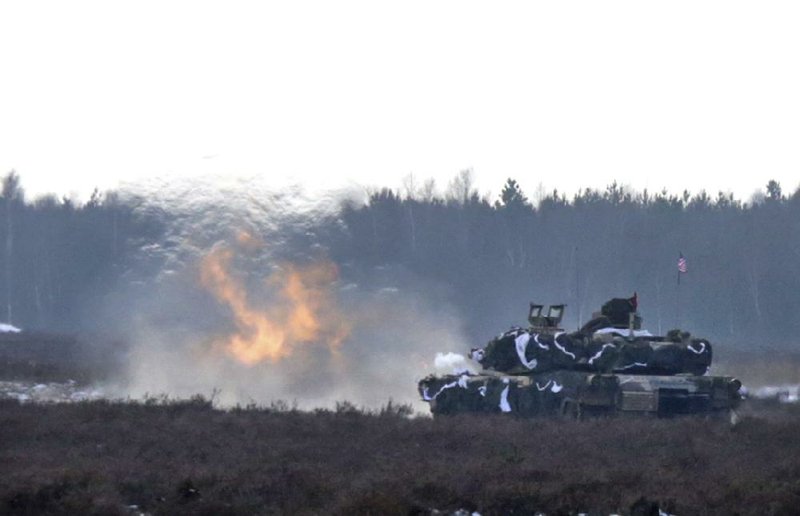ZAGAN, Poland -- On a snowy field in southwest Poland, U.S. tanks and troops gathered Monday to defend against a resurgent Russia that President Donald Trump wants to befriend.
The troops -- part of the largest U.S. deployment to Europe since the Cold War -- plan to spread across eastern Europe, fanning into the Baltic nations, digging into Poland and also deploying to Romania, Bulgaria and Hungary. New commitments were made in July at a NATO summit in Warsaw by then-President Barack Obama, and they signaled a bipartisan expression of support for U.S. allies at a moment of heightened fear about Russia.
Now, though, the troops are being deployed as Trump seeks to improve relations with Russia. Eastern European nations say they fully trust Washington's commitments -- but the jubilation of the summer has been replaced by concern over the president's overtures to Russian President Vladimir Putin. NATO leaders acknowledge that the alliance would be rocked if Trump abandons the troop deployments.
"It was the Russian invasion of Ukraine and the unlawful annexation of Crimea" that forced the deployments, said Lt. Gen. Ben Hodges, the commander of U.S. Army ground forces in Europe, ahead of a Monday ceremony on a military exercise range outside the Polish town of Zagan, where a Polish military band played "The Star-Spangled Banner" to welcome their American counterparts.
[PRESIDENT TRUMP: Details on administration, previous coverage, photos, videos]
"The last American tank left Europe three years ago because we all hoped Russia was going to be our partner. And so we had to bring all this back," Hodges said.
In an interview days before the inauguration, Trump called the NATO alliance "obsolete." But Defense Secretary James Mattis called NATO Secretary-General Jens Stoltenberg on his first full day on the job last week, praising "the fundamental and enduring value of NATO for the security of both Europe and North America," according to NATO. Later in the week, British Prime Minister Theresa May stood by Trump's side and said he had "confirmed that you're 100 percent behind NATO."
However, Trump has also called Russia a key partner in the battle against the Islamic State extremist group and described Putin as a strong leader.
The uncertainty about Trump's intentions toward Russia has weighed on eastern European leaders, who have welcomed the international deployment of several thousand troops to their nations.
Any reversal of deployments "would be an issue of concern to us," said Ojars Kalnins, the head of the foreign affairs committee of Latvia's parliament.
"An attack on any of us is an attack on all of us," said U.S. Ambassador to Poland Paul Jones, the senior representative of the Trump administration at the event in Zagan.
Polish leaders said they were delighted to be able to choose their friends, something they said was not possible during more than four decades of communist rule.
"Thirty years ago, which is not that long in history, we had units here in Zagan which we were forced to treat as allies," said Polish President Andrzej Duda, referring to Soviet Army troops. "And today we have in Zagan allies who symbolize freedom."
After the celebratory speeches, Polish and U.S. tanks and heavy artillery conducted live-fire exercises intended to show that they could work together to fend off a common enemy. Explosions and gunfire rang out across a vast, deforested plain, which was covered in the snow and mud of a Polish winter.
A Section on 01/31/2017

